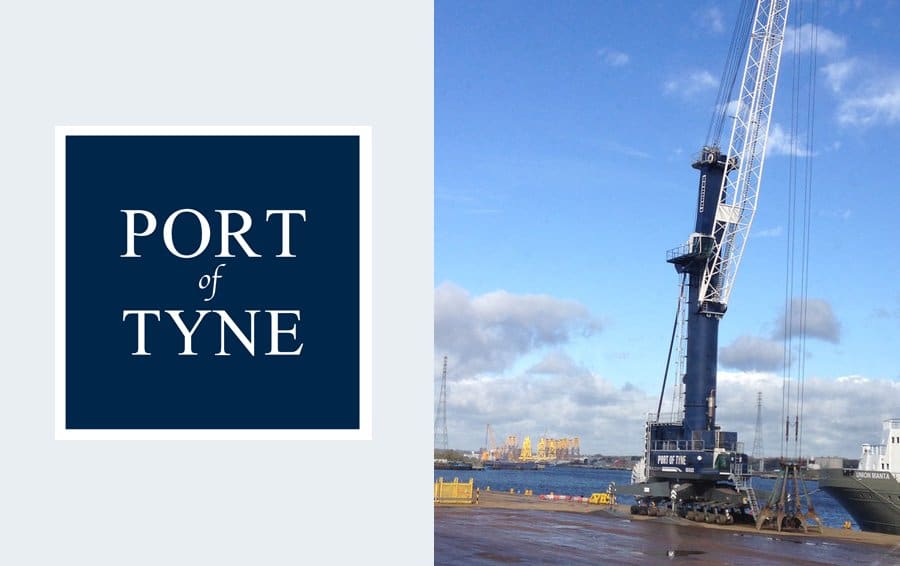Port of Tyne has completed a detailed modelling exercise and long term analysis of its electricity network, as part of its award-winning decarbonisation and clean energy strategy. This process enables the port’s leadership to understand both current and future energy requirements in line with Tyne 2050’s ambitious net zero roadmaps for Port of Tyne to become carbon neutral by 2030 and an all-electric port by 2040.
Currently the Port of Tyne is working through an innovative asset electrification programme, which involves the conversion of legacy materials handling assets from diesel to low carbon electricity. Once completed this will include a first for a UK port – to successfully convert an existing diesel powered Liebherr mobile harbour crane to be fully electric. Existing diesel powered Drax Hoppers used for bulk materials handling are also being electrified. These two initiatives alone have reduced the port’s diesel consumption by 260K litres and eliminated 700 tonnes of CO2 emissions – enough to power over 80 UK homes for a year.
Port of Tyne has also invested in a new fleet of electric vehicles, LED lighting in every building and asset, smart energy monitoring meters and a team is also evaluating the potential for installing solar panels on warehouse buildings. The switch to LED lighting alone across the port’s estate has saved over 2.5M kWh of energy. As further evidence of the port’s commitment to becoming a clean energy enterprise and innovation hub, Port of Tyne has also launched Tyne Clean Energy Park, to provide a convenient, versatile strategic base for the north east’s rapidly growing renewable energy sector.
UK Power Network Services is helping the Port of Tyne to achieve a detailed understanding of its current electricity network, forecasting the impact that electrification will have on the port’s electricity load and ensuring long term operations remain resilient.
Matt Beeton, CEO at the Port of Tyne says, “We welcome the government’s allocation of £20m to help the maritime sector adopt clean energy and have made significant progress in this direction. To date, we have invested £2 million into clean energy projects, we have cut emissions to improve local air quality and launched a new clean energy business park for the renewable energy supply chain. All our clean energy investments reduce carbon consumption and lower our costs – going forwards we will be allocating up to 30% of our annual capex for more net zero improvements as we continue to prioritise green innovation and sustainability.”
In November 2020, Port of Tyne won two Clean Energy Awards at the Maritime UK 2020 Awards in the Clean Energy Operator and Clean Energy Enabler categories. Winning these two awards highlights the significant progress the Port has already made towards meeting the ambitious net zero roadmap targets outlined in Tyne 2050 and becoming renowned as a hub for clean energy enterprise in the UK.






